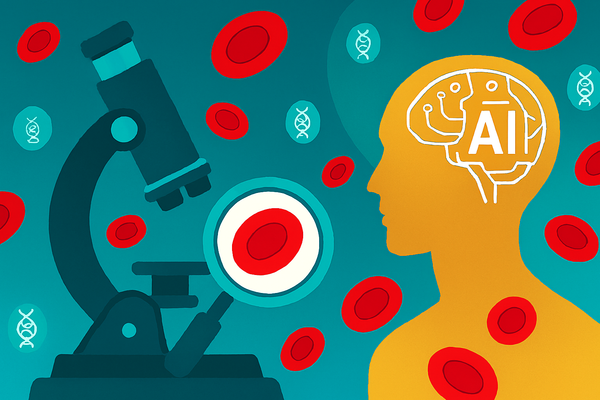The Intersection of Technology Policy and Human Rights in the Fourth Industrial Revolution

As the Fourth Industrial Revolution (4IR) reshapes economies and societies through the convergence of artificial intelligence, biotechnology, quantum computing, and the Internet of Things (IoT), the role of technology policy has become more consequential than ever. With this digital transformation comes an urgent need to address the implications for human rights especially regarding data privacy, surveillance and algorithmic discrimination. At the heart of this discourse lies the tension between technological advancement and the sovereignty of nations and individuals over their data.
Technology Policy and Human Rights: A Delicate Balance
Technology policy in the 4IR is not merely about enabling innovation or fostering economic growth. It is about safeguarding the core values of democracy, fairness, and dignity. Human rights, such as freedom of expression, the right to privacy, and protection from discrimination, are increasingly mediated through digital platforms and systems. This digital mediation amplifies the potential for abuse by both state and non-state actors if appropriate safeguards are not in place.
Automated decision-making systems, for instance, can perpetuate bias in hiring, lending, or criminal justice, often reflecting existing societal inequalities embedded in training data. Likewise, ubiquitous surveillance tools powered by facial recognition and real-time tracking technologies can infringe on civil liberties if not tightly regulated.
The Imperative of National and Data Sovereignty
In this context, concerns around national sovereignty and data sovereignty are intensifying. National sovereignty pertains to a country’s ability to govern itself without external interference, including control over its technological infrastructure. Data sovereignty, a more specific subset, refers to the idea that data is subject to the laws and governance structures within the nation in which it is collected.
Developing countries are increasingly at risk of eroding their sovereignty due to their reliance on foreign-owned artificial intelligence infrastructure and data centres. As these nations depend heavily on cloud services, algorithms, and data storage facilities operated by tech giants based in the developed world, they effectively cede control over critical digital infrastructure that underpins national security, economic stability, and governance.
This dependency limits their ability to enforce domestic laws on data privacy, algorithmic accountability, and digital rights, as jurisdiction often lies with external entities governed by foreign legal frameworks. Without domestic ownership or regulatory leverage over these technologies, developing countries may find their policy autonomy compromised, their populations subject to opaque algorithmic decisions, and their national data extracted or exploited for external interests. In this context, digital colonization becomes a modern threat, undermining the very fabric of self-governance and leaving nations vulnerable to geopolitical manipulation and economic dependency.
As Tim Wu, a professor at Columbia Law School and former White House advisor, notes, “The central struggle of the digital age is between the desire for governments to control information and the reality that information flows globally.” This tension is evident in conflicts over cross-border data flows, the location of data centres, and legal access to user data by foreign entities.
Countries increasingly view the protection of citizens’ data as integral to national security and democratic integrity. When sensitive data about individuals is stored or processed abroad, particularly in jurisdictions with weak privacy laws or authoritarian regimes, there is a heightened risk of exploitation, espionage, or manipulation.
Why Data Sovereignty Matters for Citizens
Protecting data sovereignty is not merely a geopolitical concern; it is fundamentally a human rights issue. Citizens have the right to know who is accessing their data, for what purpose, and under what legal frameworks. Without clear and enforceable data protection policies, individuals can become vulnerable to identity theft, discrimination, or unwarranted surveillance.
Edward Snowden’s revelations in 2013 about global surveillance programs underscored the importance of protecting digital rights in an interconnected world. As he stated, “Saying you don’t care about privacy because you have nothing to hide is like saying you don’t care about free speech because you have nothing to say.”
In recent years, governments have responded by enacting data localization laws and comprehensive privacy frameworks, such as the European Union’s General Data Protection Regulation (GDPR). These efforts aim to ensure that citizens' data is handled in ways that respect human dignity and align with democratic principles. Unlike some developed nations, developing countries, especially those in Africa cannot afford to blindly adopt foreign laws and policies. Africa has a responsibility to craft its own legal frameworks that prioritize the protection and empowerment of its citizens, rather than leaving them vulnerable to the same exploitation that has plagued the continent’s mineral wealth. The era of African leaders neglecting their duties in favour of appeasing former colonial powers must end. Leadership must shift toward a citizen-centric approach that serves the interests of the people first.
To navigate the intersection of technology policy and human rights in the 4IR, several steps are essential:
- Countries must implement strong data protection laws that align with international human rights standards, ensuring transparency, accountability, and redress mechanisms.
- As data flows transcend borders, global cooperation is crucial. Multilateral agreements can help harmonize standards and prevent data imperialism where powerful nations or corporations dominate the global information infrastructure.
- Developers and companies must embed ethical considerations into the design and deployment of technologies, ensuring that systems promote fairness, inclusivity, and human-centric values.
- Citizens should be empowered to understand and influence how their data is used. Public discourse, digital literacy, and civic engagement are critical to building a rights-respecting digital society.
The Fourth Industrial Revolution presents profound opportunities to enhance human welfare but only if technology policy is guided by a strong commitment to human rights. As nations wrestle with questions of sovereignty and data governance, they must prioritize the protection of their citizens’ fundamental freedoms. Doing so is not only a matter of national security, but it is a moral imperative in the digital age.





